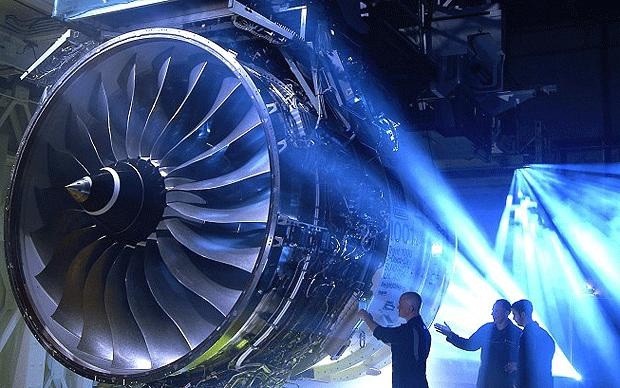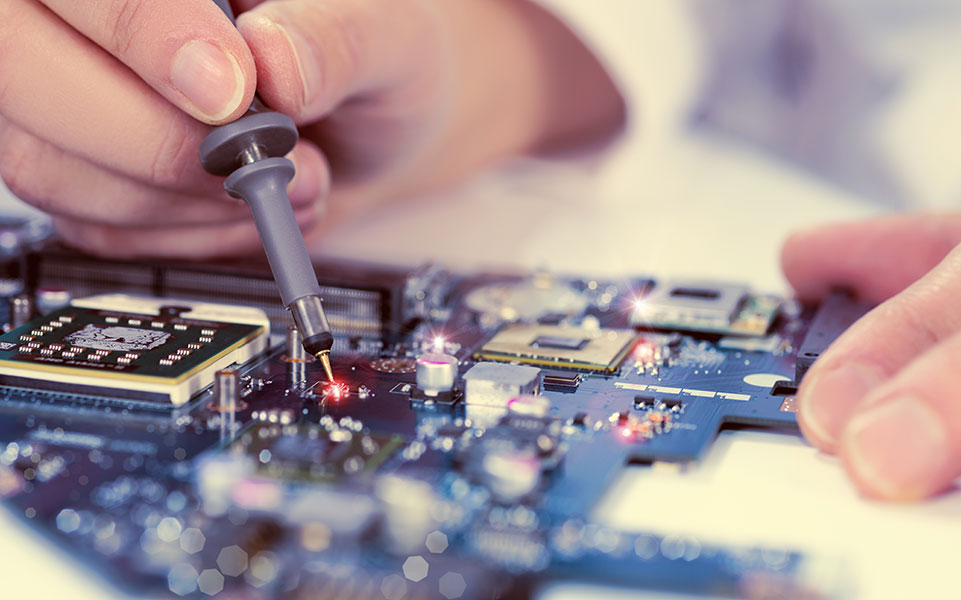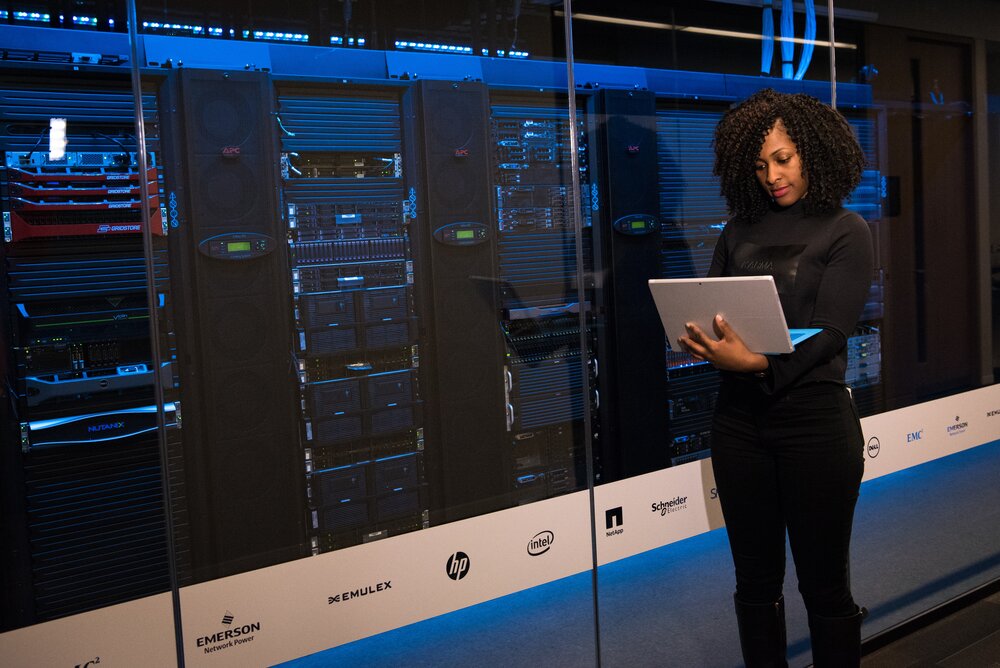- Home
- Up to XII Students
- Decide Stream For XI & XII
- Career Options
- Entrance Preparation
- Sample Papers
- Entrance Exams after 12th
- International Entrance Exams To Study Abroad
- Foreign University Comparison
- Apply to Foreign Universities
- General Preparation For Students Going To Study Abroad
- Write A Report
- Write an Article
- Write An Essay
- Important Dates
- UG & PG
- Tech Tips
- Mock Test
- GROOMING
- HOBBIES
- K PLUS
- Working Professional
- OTHERS
Career After Science

Aeronautical Engineer
Aeronautical Engineering is the science associated with the study, design, and production of flight-capable machinery or aircraft operating techniques. It is the study of the design and operations of an aircraft that involves practical and theoretical understanding of materials, assembling parts, testing, and maintenance of aircraft.
An Aeronautical Engineer’s primary job is to design aircraft and thrust systems, but there can be more responsibilities added to the profile with time. An Aeronautical Engineer may get opportunities in the Aviation industry, defence, and civil aviation department.
Job Profile
Aerospace Engineering is a board branch of research that deals with the study of aircraft and spacecraft and their production. In India and a lot of other countries, it is still a growing market. Yet India offers good potential in the field of aerospace engineering, as a booming sector one can opt to be a scientist or technician. Scientists usually work in any of the three places – manufacturing research and development, private and government labs and educational research. Even Engineers can select from different roles such as manufacturing, flight analysis, materials and processes, construction, etc. A person also has the option of joining an organization of Indian space research or NASA. In addition to NASA and ISRO, various public and private airlines, India’s Helicopter Corporation, Aircraft companies, military and defence departments, aeronautical companies, space equipment, and aircraft design organizations hire aviation engineers.
Aeronautical electronics engineers specialize in instrument maintenance, electrical and electronic equipment, navigation, radar communications, and radio communication. At airports, engineers perform routine maintenance on the ground during an aircraft overhaul. They respond to reports from aircrew of any difficulties experienced during flights, and carry out repairs and corrections and also perform aircraft maintenance and overhaul in hangers and workshops when an aircraft is due for regular inspection and checks.
Salary/Package
The average salary of an Aeronautical Engineer is Rs 6 lakh or more. With experience, the earning grows manifold. It can go as high as Rs 45 – 49 lakh per annum. The salaries may vary based on experience, skills, roles, location, etc.
Skills required
- Professional monitoring and strong calculative skills
- Physical Fitness
- Leadership skills
- Strong sense of responsibility
- Presence of Mind
- Energetic
- Strong problem solving and analytical skills
- Normal Colour Vision
- Technical and Mechanical expertise
- Quick and Accurate
- Passionate for flying machines
Pros and Cons of being an Aeronautical Engineer
Pros
- This job is very rewarding in terms of remuneration and earnings.
- This field can open doors to international exposure pretty early in the career.
- The future aspects that is bright and promising.
Cons
- The job can be very stressful and physically demanding.
- The job will demand travelling and following extreme work hours to meet urgent Aeronautical requirements.
- This profession needs extensive skill, technical knowledge and sufficient practical experience for growth.
How do I become one
Quite a few engineering colleges in India offer Aeronautical Engineering. The primary eligibility criteria for Aeronautical Engineering are a minimum of 75 % (65% for SC/ST) per cent marks in Physics, Chemistry & Mathematics in Class XII.
Aeronautical Engineers’ admission criteria for the IITs are JEE Main and JEE Advanced score. Some of the Universities conduct separate entrance tests for admission for the aeronautical branch. Below are a few of the entrances/competitive exams that students can prepare and score good marks for admissions into top colleges.
- JEE (Joint Entrance Exam) conducted by the IITs
- All India Engineering/ Architecture Entrance Examination (AIEEE)
- Delhi University Combined Entrance Examination (CEE)
- Hindustan University Entrance Test (HITSEE)
- The Indian Institute of Aeronautics Entrance Exam (IIA)
- SLIET Entrance Test (SET)
Those looking for Postgraduate courses, IITs/IISc conduct a National Level Entrance Test Graduate Aptitude Test in Engineering (GATE) for admission to postgraduate and doctoral programs in institutions under MHRD such as IITs/IISc.

Agricultural Engineer
Agricultural Engineering is a part of the tech department that deals with solving issues related to machine efficacy, power supplies, environmental issues, storage, processing, and growth of the agricultural products. Today, massive developments have taken place and gone are the days when one had to toil hard all day under the sun. The work of these engineers is majorly focused on applying the principles of engineering in improving the agricultural sector. Innovative machines are designed that makes the agricultural process easier.
Job Profile
With technological advancement, significant changes took place in the technique of agricultural production. Agriculture contributes highest to the Indian economy. But, the condition of the farmers is not great. They still toil hard under the sun and grow the food for the entire nation. It is at this point where agricultural engineers play an authentic role. They analyse the environmental impacts on agricultural growth, supervises the construction of reclamation, drainage and irrigation daily. They even test and install new harvesters, logging machinery and alike.
Candidates who hold enough experience and have completed MTech can even join government bodies to make significant decisions related to agricultural development. Nowadays, the agricultural domain is expanding at a rapid pace. New projects and development programs are lined up that has increased the demand of an expert engineer. To accomplish the project, renowned engineers work in a team that requires enough fieldwork. For testing and analysing whether the equipment is perfect or not, they have to work and rework on it. Farm-based working is more. One needs to remain away from home for a few days if they are posted as an agricultural research engineer.
Salary/Package
Salary in private sector firms like Research and Development firms or fertilizer firms is between Rs 2.5 lakh to 4.5 lakh per annum. The pay scale varies from company to company. In private companies, the pay scale is less as compared to the government. Compelling career options include Agricultural production and research engineers, conservation engineers, farm equipment engineers, agricultural research engineers, biosystems engineers and many more. The salaries may vary based on experience, skills, roles, location, etc.
Skills required
Subtle knowledge of science
Advanced mathematical skills
Should creatively apply the technique of agrarian engineering
Technology
Proficient analytical skill to understand the complex systems of crops, animals, machinery, tools and many more
Pros and cons of being an Agricultural Engineer
Pros
- You are part of something that would lead to the welfare of the whole economy
- Being the demanding sector, one’s chances of growth and secure job increases is the part of that industry that feeds the entire nation
- As very few students move ahead to this career, competition is less fierce
Cons
- As the job is related to a lab test, an electrical hazard is more
- If labelling is done false, it can hurt various individuals
- Extensive practising, years of experience and sufficient skills are required to grow prosperously
How do I become one
To enrol in the B.Tech program, a student should qualify with the aggregate marks of 50% in Science stream. Two popular courses under UG and PG programs include B.Tech in agricultural engineering and M.Tech in agricultural engineering respectively.
After completing +2 from Science stream, candidates can appear in different agricultural entrance exams like:
- ICAR (Indian Council of Agricultural Research) All India Entrance exam – B.Tech & M.Tech
- IIT-JAM (Indian Institute of Technology- Joint Admission Test) – B.Tech & M.Tech
- AIEEE- All Indian Engineering Entrance Exam – B.Tech
- National Institute of technology combined pre-entrance test – B.Tech

Architect
Architecture is the study of learning the art and science of designing a physical structure be it buildings, communities, skyscrapers, artificial constructions etc. This work includes both ideation and designing of a structure and extends to monitoring the actual construction. The professional equipped with this study and the necessary skills is known as an architect.
The latest developments in this field are indoor-outdoor living, hypnotic bridges, rotating skyscrapers, natural disaster proof forts, 3D printed interiors etc. With the advancement in technology, we are already witnessing smart home technology being leveraged and put to best use.
Job Profile
Architects may be involved in all phases of development, from the initial discussion to construction. Their duties demand a variety of skills e.g. design, engineering, managerial and supervisory.
Creative Designing
- Some architects concentrate on design work. Design involves both artistic and scientific skills, i.e. producing something which is also technically feasible.
- They work on a set of instructions from their clients defining the type of building required – residential, commercial or industrial or an entire housing or industrial estate and the estimated budget available.
- The project could involve designing from the very beginning or making alterations to existing structures.
- The ideas are discussed and approved. Sketches and plans with details of sizes, specifications are made and estimates of the cost of building materials are prepared.
- Models for a more graphic presentation of a project may be prepared.
- Designing of the interior layout of buildings. The work may be done by an architect alone, in a team, or with the aid of architectural technicians.
- This largely depends on the type of organization or firm an architect is working for and the type of contracts he undertakes.
Managerial and Administrative responsibilities
- Obtaining building permission from the local authority.
- Preparing and negotiating contracts with building contractors, civil and structural engineers and Surveyors.
- Presenting drawings and estimates.
- As overall in-charge architects make regular visits to the site, checking the progress and quality of work.
- Ensuring site and materials security.
- Issuing instructions to the contractor/agent and certifying payments to contractors.
- Discussing problems with the site manager and civil or structural engineers until the construction is complete and ready for the client’s use.
Experienced and senior professionals in Architecture work on large assignments and generally have a team of junior architects, architectural assistants etc. They work as consulting managers, directing, inspecting and dealing with major technical issues, costing, legal decisions, etc. It takes 10 years or more to reach their position.
Salary/Package
The starting salary in India will be in the range of RS. 25,000-35,000 but after being promoted, the salary reaches Rs, 80,000-90,000 in a few years. However, the pay also depends on the college from where you have done your B. Arch., your skills and experience. Also, doing M. Arch will increase your starting salary and future growth. The salaries may also vary based on experience, skills, roles, location, etc.
There are many companies which go for hiring for entry-level jobs and lateral hiring through referrals and job portals for managerial roles. Some of the companies are CBRE, L&T, Hiranandani Group, Atkins, Hafeez Contractor, CCB, Kreative House, Sobha Group, DAAR, VConstructions to name a few.
Skills required
- Technical Know-How: You need to really sound with the concepts you have learned by far and its application in the real world designing.
- Good communication skills: Good ideas are worth nothing if they cannot be put across to stakeholders and convince them of the same.
- Management Skills: You also need to get the work done by employees who are below you in the hierarchy.
- Out of the box thinking: creativity is a non-negotiable clause when it comes to this business. You need to contemplate and make those ideas happen.
- Visualization Skills: You need to be excellent with the angles, drawing and sketching skills to design a perfect prototype of your model.
- Meticulousness: There should be great attention to each and every detail while working on a project.
Pros and Cons of being an Architect
Pros
- Growth Opportunities
- International Exposure
- Not a mundane job
- Job Security
- Handsome pay after some years
Cons
- Low income initially
- Less of duty on the ground
- Longer working hours
- Constant up gradations and corrections in designs as per clients’ requirement
How do I become one
To earn a B.Arch. (Bachelors in Architecture) degree in India, you need to have at least 50% aggregate marks in Higher Secondary (Class XII) with three subjects namely mathematics, chemistry and physics. You can also apply for B.Arch. if you have a diploma in Civil Engineering after class X with equal to or greater than 50% aggregate marks. This is the academic requirement to take the first step in your architectural journey.
There are two entry exams to secure a seat for B.Arch. program from a reputed institute. The first is through NATA (National Aptitude Test in Architecture) which is a national level entrance exam and the second is through JEE Mains-JEE Advance-AAT (Architecture Aptitude Test).

Biomedical Engineer
Biomedical Engineering is the study of the engineering principles of medical sciences. The objective of this course is to streamline the rapidly advancing healthcare sector of the country. Increased health awareness, education and medical advancement and expanding population, all have led to rising interest in Biomedical Engineering as a course. The course includes diagnostic and therapeutic applications of medical science. It is one of its kinds of balanced amalgamation of engineering and medical sector, making the stream very interesting. With the advancement in technology, the latest development in the Biomedical Engineering sector is more incorporation of advanced technology.
Job Profile
The nature of the job is generally stress free, though depending on the project deadlines, the work hours may get stretched. Also, there may be a need to travel out-stations for seminars and conferences. In the coming years, the growth in the career of biomedical engineering is expected to multiply manifolds. Biomedical Engineers can work in biotechnology companies, health departments, hospitals, instrumentation department, maintenance department, the research sector and diagnostic department.
Additionally, candidates can also start their work as consultants in various sectors dealing with biomedical science instruments. . Besides, in testing laboratories, pathology labs, research institutes, college and university laboratories, too they can work as consultants.
Many candidates also take teaching in universities, institutes and colleges after course completion. Those with a PhD degree can be appointed as scientists, research assistants and associates with institutes.
Salary/Package
The average salary in India will be in the range of RS. 3.5 lakhs per annum but after gaining experience and promotions, the salary reaches up to Rs, 6 lakhs per annum. The salaries may vary based on experience, skills, roles, location, etc.
Skills required
- Interest in both medical as well as engineering stream
- A sound knowledge of technology and medical science
- Knowledge of designing, computer modelling, software design
- Good communication skills
- Technology-driven
- Sound knowledge of Anatomy and Physiology
Pros and Cons of being a Biomedical Engineer
Pros
- The biomedical industry sector is seeing growth and investment from the government as well as private sectors.
- There is still relatively less competition in the market compared to other engineering streams.
- There is a good scope for candidates who want to work outside India, as demand for biomedical engineers is more there.
Cons
- The industry is in the growing stage and does not have an as diverse scope as other medical and engineering streams.
- There is limited recognition and reach of this course among the masses. More colleges and institutes need to have biomedical engineering courses.
How do I be one
To pursue Biomedical Engineering, candidates can take admission in B.Tech, B.Sc., and B.E. course. To apply for admission, candidates need to be 10+2 passed in the science stream with a minimum of 50% marks from a recognised board.
For admission in MTech and ME, candidates need to graduate in Biomedical Engineering or biotechnology stream with minimum 50% marks from recognised institute or university. Candidates having an MBBS degree can also apply for the post-graduation in biomedical engineering.
For admission in M.Phil and Ph. D, candidates need to be post-graduate in Biomedical Engineering.
There is an entrance exam for admission in biomedical engineering courses. Most of the universities and colleges in India take admission through JEE main in the undergraduate course. Also, state-level exams are conducted for admission within the state colleges and universities. BITS (Birla Institute of Technology), VIT (Vellore Institute of Technology) and other private institutes also hold examinations for admission in engineering courses.
For admission to postgraduate courses, candidates need to have GATE scores.
These are some of the entrance examinations for admission in biomedical engineering:
- Graduate Aptitude Test in Engineering (GATE)
- JEE Main
- JEE Advanced
- SRMJEEE
- VITEEE
- BITSAT

Chemical Engineer
Chemical Engineers work out economically efficient, safe and environment friendly methods for production of chemicals on a large scale. Equipment for the processing of chemicals and related products such as plastic, pharmaceuticals, detergents, foodstuff etc. are also designed and maintained by Chemical Engineers.
Job Profile
- Apply knowledge of Chemistry, Biology and Physics to the industrial production and use of chemicals and related products
- Carry out research to develop new and better manufacturing processes
- Design equipment
- Plan, manage, and troubleshoot the running of an installation
- Conduct tests to monitor the efficiency and safety of the production processes
- Develop safety standards for workers in the industry
- Evaluate the installed equipment to follow safety regulations and environmental guidelines
- Project costs of production to the management
- Develop methods to carry out complex chemical processes
- Chemical Engineers work in the energy, food, clothing, petroleum, healthcare, biotechnology, etc sectors
- Specialize in Nano-materials, Polymerization, Oxidation, etc.
Salary/Package
The average salary in India will be in the range of RS. 2.5 lakhs per annum but after gaining experience and promotions, the salary reaches up to Rs 12.5 lakhs per annum. Some of the employment opportunities are in Chemicals manufacturing industries, Petroleum industry, Food industry, Electronics industry, Rubber industry, Textiles industry, Paper & Pulp industry, Aerospace industry, Plastic industry, Cement industry and Public sector units to name a few. The salaries may also vary based on experience, skills, roles, location, etc.
Skills required
- Analytical and deductive reasoning skills
- Problem solving skills
- Interpersonal skills
- Ability to work under harsh conditions and deal with harmful materials
- Good Maths acumen
- Good communication skills
- Team player
Pros and Cons of a Chemical Engineer
Pros
- High-level Salary and Benefits
- Intellectually Stimulating Work
- Ability to Contribute Meaningful Advancements to Society
Cons
- Hazardous Work Environments
- Lack of Free Time
- Slow Job Growth
How do I be one
Path 1
Std XII (Stream: Sc PCM) >> Entrance Exam (JEE) >> BE/BTech (Chemical Engineering) >> Goal (Chemical Engineer)
Path 2
Std XII (Stream: Sc PCM) >> Entrance Degree (BE/BTech) >> Selection (GATE) >> Post graduation (M.Tech) >> Goal (Chemical Engineer)
Path 3
Std XII (Stream: Sc PCM/B) >> Grad/Diploma (BE/BTech/BSc/BPharma) >> Work experience 2yr/Diploma AMIIChE >> Goal (Chemical Engineer)
- JEE (Joint Entrance Examination) selects students for admission to various engineering colleges in India. There are 2 different exams JEE Main and JEE Advanced.
- JEE Main is conducted by CBSE while JEE-Advanced is conducted by different IITs as decided on rotation basis.
- JEE-Mains select students for admission to BE or B.Tech courses, Integrated MSc’s, B.Arch/B.Planning courses in the NITs, IIITs and all GFTIs (Government – Centre & State Funded Technical Institutes).
- JEE-Advanced Students qualifying JEE Mains through the prescribed cut-off marks are eligible to appear for JEE Advanced.
- Other engineering entrance examinations are conducted by States /Private engineering colleges for selecting candidates for BE/BTech courses which have not opted for JEE Main selection process like BITSAT, VITEEE, CET etc.
- Graduate Aptitude Test in Engineering (GATE) for admission to postgraduate and Doctoral programmes in Institutions under MHRD such as IITs IISc, Science research institutions a National Level Entrance Test GATE is conducted. Selected candidates get a scholarship/Assistantship in Engineering/Technology/ Science/Architecture.
- Work Experience in any of the following: Design and fabrication of chemical plant and equipment/ production and quality control in chemical or process industries, research and development in chemical or process industries, management or technical sales in chemical industry, Chemical Engineering education.
Diploma of AMIIChE from the Indian Institute of Chemical Engineers. This is recognized as equivalent to a degree and further MTech can be pursued

Dentist
Dentistry or Dental Medicine is the study, diagnosis, treatment, and prevention of oral disorders in humans. The research in this field deals with keeping the mouth, gums, and teeth healthy and in working condition. Recently, the world of dentistry saw many huge leaps with better technology that helps Dentists and patients save time in locating any oral abnormalities. Even the much-hated braces that people used to wear got a considerable upgrade and now are clear and practically invisible. Oral-related issues plague over 3.9 billion of the population and Dentists are in huge demand in several countries.
Job Profile
The work pressure depends on how many other Dentists are working at your place of work. With people getting aware of oral hygiene and oral related issues on a constant rise, the work pressure at times can be quite overwhelming. In India, the working hours of a dentist can go to 8 hours, and in a few places, they work in shifts. If you own a private clinic, you can be your boss and work as much as you like.
A Dentist is responsible for diagnosing and treating dental issues. They need to help their patients develop and maintain good oral hygiene so that they do not face any other oral related issues. Here are some of the duties a dentist has to do:
- Inspect a patient’s mouth to find the cause of their oral problems.
- Remove decaying teeth and or fill cavities.
- Repair cracked or damaged teeth.
- Straighten or realign the teeth if needed.
- Take and study X-rays of the patient’s teeth, gums, jaw, etc.
- Administer anaesthetics while performing tooth removal procedures.
- Write a prescription for the medicines required after the tooth removal procedure.
- Instruct the patient on how to keep good oral hygiene with everyday products.
There are different aspects of Dental practice, some of them are like: Public Dental health specialist, Endodontist, Oral & maxillofacial radiologist, Maxillofacial surgeon, Oral pathologist, Orthodontist, Pediatric dentist, Periodontists and Prosthodontists.
Salary/Package
The starting salary of an entry-level dentist with less than a year’s worth of experience can be around Rs 15,000 to 20,000. With over a year’s worth of experience, a dentist will be compensated to the sum of Rs 24,000 to 30,000. A mid-career dentist with over five years of experience can look forward to over Rs 38,000 per month. With over ten years’ experience, a dentist can receive a handsome pay of over Rs 60,000 per month. These are just the basic level pay scale. These can differ significantly from state to state and from hospital to hospital. The salaries may also vary based on experience, skills, roles, location, etc.
Skills required
- To be successful in the field of dentistry one has to be passionate about medicine.
- Good communication skills and manners.
- You will also have to know about the different kinds of oral related diseases and issues a person can have.
- Since a dentist needs to use sharp instruments inside a patient’s mouth, the person needs to have steady hands and not afford to be clumsy.
- Composed and patient attitude.
Pros and Cons of a Dentist
Pros
- It is a career path that is in demand right now.
- A stable 9-5 job with little work pressure.
- You can start your own clinic.
Cons
- The work can get very monotonous.
- You can suffer from backaches and back-related problems.
- Some dental procedures do not work on certain patients.
How do I be one
To begin your course in Bachelor of Dental Surgery or BDS, you will need to have a pass certificate of Higher/Senior Secondary Examination from a recognized board with 50% marks in Chemistry, Biology, and Physics. The course for Bachelor of Dental Surgery now also allows students who have studied from NIOS or National Institute of Open Schooling to apply for the entrance exam. The college or university will determine the difficulty of the entrance exam you will be applying to but be assured questions on subjects like Mathematics, Physics, Biology/Biotechnology, and Chemistry will appear.

Electrical Engineer
Electrical Engineering is a subject that deals with the study of the application of electricity, electronics and electromagnetism. A student has to learn transmission and generation of electric power, electric circuit design, electronics and instrumentation and control systems. Professional electrical engineers design various electric circuits and equipment to work on large power plants, hardware companies which include designing, manufacturing and operating of various power plants, industrial machinery, electrical motors, computer chips and ignition systems for automobiles, aircraft, space crafts and all kinds of engines.
Job Profile
The job prospects in the power industry/construction are in high demand. One ought to have sound theoretical knowledge of electricity. This job calls for analyzing procedural functions of engineering to do the software encoding.
Some of the common designations offered to Electrical Engineers are Power Engineers, Telecommunication Engineer, Nuclear Engineer, Design Engineer, Consultants and as a System Analyst. The job profile includes designing, manufacturing and maintaining engine’s flow of power with specialized skills in microelectronics design. Various power plants, motors, the ignition system of automobiles, spacecraft and engines are researched in various ways to compute the cost of manufacture with its related specifications. They prepare, analyze and review reports based on data prepared and provide necessary technical support as and when required. Data needs to be interpreted prepared based on the given documentation. The job of an Electrical Engineer is always hectic; his outdoor activities include a visit to the site if required when on a call.
The job involves meeting with new clients and local authorities about new designs and circuits that are manufactured and when and where it can be implemented in various sectors. The project sometimes includes coordinating with other engineers, scientists, lawyers and technicians, as needed.
Salary/Package
Job profiles consisting of Electrical Engineer, Mechanical Engineer & Environmental Engineer, and the average salary in India will be in the range of RS. 15,000 – 20,000 per month but after gaining experience and promotions, the salary reaches up to Rs 60,000 – 75,000 per month. The salaries may vary based on experience, skills, roles, location, etc.
Skills required
- Creativity
- Problem-solving skills
- Active listening skills
- Technical expertise
- Ability to absorb new knowledge
- Strong analytics
- Excellent communication
- Competency
- Ready to travel to the necessary sites
- Adapting to technological scenario
Pros and Cons of Electrical Engineering
Pros
- It is a rewarding career with well-paid benefits.
- Skills learned in this field can be utilized in other careers.
- Multiple job profiles to blend your expertise.
- Excellent package for overseas engineers.
Cons
- It requires abilities and knowledge with numbers.
- Risk of hurting yourself with an electrical device.
- Erratic work timings for different designations.
- There is limited employment growth, hence need to update themselves according to generation.
- You will be required to visit remote locations.
How do I be one
Candidates must have passed class 12th in Physics, Chemistry and Mathematics or Physics, Chemistry, Mathematics and Biology with at least 55% marks in aggregate from a recognized school or university or whichever is equivalent. They must also have cleared an entrance examination JEE Main, JEE Advanced, BITSAT or GATE for the admission in the required course. Students can pursue ME/MTech courses after clearing GATE.

Electronic Engineer
Electronic Engineering is a branch of engineering that involves the study of the electromagnetic spectrum. Electronic Engineering is a professional discipline that includes the study of electronics, electricity and others. The Electronic Engineer can design, develop, supervise and test the manufacturing of various electrical equipments like motors, navigations systems, automobiles, aircraft, power generation equipment and many others. An Electronic Engineer can choose from various fields such as cell phones, computers, electronic gadgets, power plants, navigation systems and others. Electronic Engineering is a rapidly growing field. It has an increasing need for professionals for supervising the manufacturing processes of the electronics along with the installation and maintenance of the areas of these devices.
Job Profile
Electronics engineers create, design and develop everyday devices such as mobile phones, portable music devices and computers. Electronic engineering offers the chance to produce new innovations and developments in telecommunications, robotics, computing hardware, and power and electrical equipment.
Typical duties for an electronics engineer include:
- Using a mix of science and maths, along with engineering techniques, to design, produce, install and maintain telecommunications systems
- Designing and managing equipment used to control and monitor processes, systems and machinery in many different areas
- Using and designing systems to control pressures and temperatures and to manage waste in manufacturing industries
- Writing specifications and drawing up theoretical designs to create user-friendly interfaces
- Planning projects and preparing and managing budgets
- Writing technical reports and keeping up to date with developments in technology and regulations
- Evaluating operational systems and recommending design modifications to eliminate causes of malfunctions or changes in system requirements
- Using computer-assisted engineering (CAE) and design software and equipment to perform engineering tasks
Some of the key positions offered to an Electronic Engineer are: Design engineer, System analyst, Broadcast engineer, Electrical engineer, Aerospace engineer, IT Consultant, Network engineer, Electronic engineer, Instrumentation engineer, Nuclear engineer, Control and Instrumentation engineer and Manufacturing Systems engineer.
Salary/Package
A fresher Electronic Engineer is offered a salary of around Rs 2.5 Lakh to Rs 5 Lakh per annum. Qualification, work experience and performance are the prominent factors that would determine the level of salary the candidates would be offered. After gaining experience and promotions the average salary can be of around Rs 10 Lakh to Rs 12 Lakh per annum. The salaries may vary based on experience, skills, roles, location, etc.
Skills required
- Active learning
- Innovative thinking
- Technical knowledge
- Problem-solving skills
- Operational skills
- Organizational skills
- Interpersonal skills
- Critical thinking
- Data collection and analysis
Pros and Cons of Electronic Engineering
Pros
- Engineers often escalate to management positions and earn excellent money over the life of their careers
- Great salary right out of school
- Abundant job opportunities worldwide
Cons
- The work can be stressful
- Workload can be unpredictable and at times very high
- Competitive atmosphere for promotion
How do I be one
- 10+2 Science stream with compulsory subjects’ Physics, Chemistry and Mathematics
- Minimum of 50% marks are the required passing marks to be eligible for
- Electronic Engineering diploma, UG, PG or doctorate course
- Entrance examinations such as JEE, AIEEE and others are conducted at the national level and state level
- Some of the colleges opt for the Common Entrance Test (CET) as well
- Admissions to any course of Electronic Engineering is completely merit-based
- Masters degree can be pursued after completion of BE or BTech with a minimum 50% aggregate marks in the finals
- A doctorate can be pursued after completion of post-graduation

Computer Engineer
Today, computers have invaded every facet of our lives. Offices, industries, manufacturing processes, financial activities, medical, education, entertainment, home, and computers have changed the way of living, working, studying, entertaining etc. India is at the forefront of this expanding industry, and it is expected to grow exponentially in the next few decades.
Today, robots and Artificial Intelligence (AI) are creating a storm in the possibilities of using AI in medical, manufacturing and other areas to compete with human intelligence. Data Science is another vast field which has gained popularity in the last decade or more. On the hardware side, innovations like Drones, Chip hardware processors, Robots, etc. are the new areas which are throwing up vast opportunities.
Job Profile
With a growing demand for technological advancements in every sphere of economic activity, the need for trained, skilled and qualified computer engineering professionals is unlimited. At the initial stage of their career, a programmer does coding work in the language used by the organisation. With experience and added skills, the designing of the project is handled by the Senior Project In-charge. It is mostly a desk job, requiring long hours, diligently coding and programming on computers/laptops.
Teamwork is essential as each member creates different modules that fit into the total design of the programme. Timelines and adhering to schedules of delivery of the software to the client requires the programming team to work on strict time schedules, and this may require long hours of work. Most of the software companies take up offshore assignments and adhering to the schedule is paramount.
Artificial Intelligence (AI) and Data management are jobs in high demand. It is predicted that about 2.3 million AI jobs will be created by next decade. Robotic programmers, Machine learning researchers, video game programmers will be in high demand in the coming decade. Data mining is another field in high demand and Data analyst, data miners will be most sought after in the job market.
Salary/Package
An entrant in software programming can earn about Rs 6 lakh p.a., while a software engineer with about 5-10 years’ experience will earn in the range of Rs 10-15 lakh. Top Companies pay about Rs 15-25 lakhs to their senior executives. A hardware engineer would receive about Rs 3 lakh to Rs 5 lakh p.a., at the start of their career. The salaries may vary based on experience, skills, roles, location, etc.
Skills required
- Learning various languages like Java, C++, SQL, Python, HTML, etc
- Analytical skills
- Critical thinking skills
- Clear communication
- Upgrade knowledge of new languages, O.S.
- Creativity to have unique ideas
- Analytical mind
- Articulation
Pros and Cons of career for Computer Engineers
Pros
- Booming industry and vast growth prospects
- New and innovative areas for up skilling and career advancement
- Lucrative job opportunities in India and abroad, especially the USA
- Excellent salary and perks
- Work from home concept prevalent in this industry
- Most innovative HR practices start in this industry
- Offers scope to study new languages and skills to further your career
Cons
- Mainly a desk job and long working hours
- Health issues due to long hours in front of computers/laptops etc.
- Supply of computer engineers is more than the demand
- Stressful time schedules to meet deadlines
- Shift timings to suit Offshore Client’s working hours
How do I be one
Student aspiring to be a Computer Engineer has to pass XII class in Science stream with Mathematics, Physics and Chemistry as compulsory papers. Many Boards have Computer as a subject in X and XII class too, and students can opt for this subject at the school level itself. For a B. Tech. or B.E. course, a candidate has to appear for IIT Entrance exam/JEE and based on the ranking; choose a college offering 4 years-Computer Engineering Course. There are broadly 2 branches in Computer Engineering – Hardware and Software. Specialization can be taken up as postgraduate courses. One can do a 2-year Masters in Computer Application or MSc. in Computers in India. One can also do MS abroad after clearing the GATE entrance test. Ph. D for research and super specialization is also available in most Universities. Diploma and varied certified courses are also available from many institutes for those desirous of learning a particular language. These courses can be taken up from school level.

Biotechnologist
A bundle of techniques applied to living cells is what we call Biotechnology. Bio-technologists engineer these living cells to produce a particular product of improved quality. Biotechnology is the exploitation of natural resources at the microbial and molecular level to produce a product of improved quality for the benefit of mankind. The work Bio- technologists do is in a variety of sectors like in agriculture, pharmaceuticals, medicine, environment etc.
Job Profile
- Bio technologists largely work in laboratories to conduct scientific research.
- They work in a variety of sectors e.g. agriculture, pharmaceuticals, medicine, environment, chemical research, energy management, genetic engineering and industry.
- Biotechnology being an interdisciplinary field involves combined scientific research projects involving disciplines such as microbiology, immunology, molecular biology, genetics, biochemistry, chemistry, food science, agriculture and engineering.
- Agricultural biotechnologists conduct research for improving crop, livestock, forestry and fishery. Their work involves devising biotechnological techniques for increasing productivity, quality, efficient processing and utilization of products with lesser reliance on agro chemicals. The development of bio insecticides, bio-chemicals and tissue culture has been the contribution of bio technologists which has almost revolutionized agriculture sciences.
- Bio technologist’s also work in medical and health care research.
- With the application of Biotechnology pharmaceutical research, development of new vaccines, and diagnostic procedures has evolved.
- Environmental biotechnology is used for treatment of industrial waste to recycling of sewage and microbial processes using many analytical and diagnostic techniques.
- Biotechnologists also work in genetic improvement. It is an extensive area of work encompassing agriculture, animal and human genetics.
Salary/Package
An entry-level Biotechnologist with less than 1 year experience can expect to earn an average total compensation of Rs. 3.5 Lakh p.a. An early career Biotechnologist with 1-4 years of experience earns an average total compensation of Rs. 5 Lakh p.a. A mid-career Biotechnologist with up to 10 years of experience earns an average compensation of Rs 7-8 Lakh p.a. The salaries may vary based on experience, skills, roles, location, etc.
Skills required
- Scientific temper
- Perseverance
- Urge to lead innovative research
- Ability to work as part of a team
- Hard work
- Bright academic profile
- Aptitude for continued learning
Pros and Cons of career for Biotechnologist
Pros
- Ability to conduct experiments
- Laboratory work environment
- May work on finding cures for diseases
Cons
- Strict safety procedures when dealing with dangerous substances*
- Risk of contamination
- Strong job competition
(Source: U.S. Bureau of Labour Statistics.)
How do I be one
Path 1
Std XII (Stream: Sc PCM/B) >> Graduation (Biochem/BotanyZool/Genetics) >> Entrance (CEEB/ IARI Entrance Test) >> Post graduation (M.Sc Biotech) >> Goal (Bio-technologist)
Path 2
Std XII (Stream: Sc PCM) >> Entrance (IIT JEE) >> Graduation (5 yr Integrated Biotech) >> Goal (Bio-technologist)
Path 3
Std XII (Stream: Sc PCM/B/Agri) >> Graduation (Physical/Life sc) >> Entrance (CEEB/IARI Entrance Test) >> Post graduation (M Sc Biotechnology) >> Goal (Bio-Technologist)
Path 4
Std XII (Stream: Sc PCB/M) >> Graduation (MBBS/B Pharma) >> Entrance (CEEB/IARI Entrance Test) >> Post graduation (Biotechnology) >> Goal (Bio-Technologist)
Path 5
Std XII (Stream: Sc PCB/M) >> Graduation (B.Sc Life sc) >> Entrance (CEEB/IARI Entrance Test) >> G Tech (M Sc/MTech Biotech) >> Goal (Bio-Technologist)
An interdisciplinary subject, biotechnology encompasses a wide variety of spheres, hence students from a wide range of academic backgrounds can do postgraduate studies in this specialized field.
Entrance Exams:
JNU Combined Entrance Examination for Biotechnology (CEEB) is conducted for MSc Biotech (2 yrs).
Eligibility: Bachelor’s degree under 10+2+3 pattern of education in Physical, Biological, Agricultural, Veterinary and Fishery Sciences, Pharmacy, Engineering/Technology, 4-years B.Sc (Physician Assistant Course); or Medicine (MBBS) or BDS with at least 55% marks
IARI: M.Sc./M.Tech.Biotech degree courses: Entrance examination for admission to M.Sc./M.Tech degree courses at IARI is undertaken by the Education Division of ICAR and on the basis of the merit, the ICAR finalizes the admission for M.Sc./M.Tech. degree courses in 26 disciplines at IARI.
Graduate Aptitude Test in Engineering (GATE) For admission to postgraduate and Doctoral programmes in Institutions under MHRD such as IITs IISc, Science research institutions a National Level Entrance Test GATE is conducted. Selected candidates get a scholarship/Assistantship in Engineering/Technology/ Science/Architecture.
Eligibility is a 3 or 4 year degree, technical diploma, architecture 5yr, Integrated 5 year degree courses, Postgraduates in Maths/ Sc/ Stats/Computer Applications.

Clinical Researcher
Clinical Research is a stream of healthcare science that analyzes and determines the effectiveness of each medicine, diagnostic, device and other products that are used in the healthcare sector. The researchers take up tests and diagnose each drug before sanctioning the use of the same. All the researchers have to carry out research that includes experiments on each medicine and equipment. These research works are known as trials, and the data generated from these trials give the solution to all questions of the healthcare department. One of the most booming industries in India recently is the clinical research industry.
Job Profile
Based on the experience and abilities of an associate, there are different levels in the organization where they can work. They get to work as Clinical Research Associates, Clinical Research Physicians, Clinical Research Coordinator, Biostatistician, Clinical Research Analyst etc.
Salary/Package
The starting salary of a clinical researcher is between Rs 5-12 lakh per annum. The salary depends on the work, experience, and the organization where the candidate will work.
Skills required
- Decision making
- Should have a good understanding of the on-going scenario in the world
- Multi-tasking
- Time management and organizational skills
- Confidence
- Communication skill
- Flexibility in working hours
- Attention to details
Pros and Cons of a Clinical Researcher
Pros
- There are a lot of opportunities available in this sector.
- You get to treat people in a better way.
- You get to learn about the antidotes that are helpful.
Cons
- Extra paperwork is needed.
- You might have to extend your working hours.
How do I be one
For every Clinical Research Associate, the candidate needs to complete graduation as well as post-graduation in life or medical science or nursing. As additional knowledge the candidate should have a good understanding of these subjects: Biology, Anatomy, Physiology, Chemistry, Biochemistry, Microbiology, Toxicology, Immunology and Pharmacology.
The above-listed subjects are necessary for the students to learn and understand during their graduation and when they enter in the post-graduation course they must be aware of the clinical trials and how to get them. The understanding of these trails helps the candidate in getting an edge during the search of employment. The minimal education qualification required in this sector is graduation.

Pharmacist
Pharmacy deals with preparation, dispensing and review of drugs (medicines). So, a qualified and experienced pharmacist would be involved in the Research and Development of drugs, Manufacturing of drugs, Marketing and Dispensing of drugs and so on. In India, the patients need to rely on the prescriptions of a doctor. Yet the drug stores would serve as semi-clinics to address general health issues. You can become a Wholesale supplier of drugs being a Pharmacist. Again, there are opportunities with the government bodies to work as drug analysts or drug inspectors too.
Job Profile
The Pharmacists ensure that the patients get maximum output out of the medicinal treatment. The pharmacists would be involved in every phase of a drug. They can research and develop medicine and discover a drug. Most of the governments encourage and fund the research for cost-effective medication to combat various health issues. Pharmacists take an active part in the manufacturing process of drugs such as tablets, capsules, injections, syrups and so on. Pharmacists also serve as the experts in quality assurance of drugs.
They are also involved in the analysis and review of the medicines. This profile helps the pharmaceutical industry to fine-tune their products and services for better results. Qualified and experienced pharmacists also work for certification of drugs, analysis of drugs, and an inspection of drugs and so on.
Salary/Package
In various roles and sectors, a pharmacist in India can expect an average remuneration of about Rs 3 Lakh per annum to begin with. The remuneration depends upon the company, the responsibilities and the overall calibre of the person. The pharmacists in trading of medicines earn better due to the constant high demand for drugs across the country. The salaries may also vary based on experience, skills, roles, location, etc.
Skills required
- You need to develop your knowledge about the drugs you deal with
- Being a pharmacist, you would need to interact with the patients buying their medication
- Computer skills is very important
- You need to be well-versed with chemistry, physics, math and some other science-related subjects
- The pharmacists need to be aware of the ethics and adhere to them consistently
- Research and scientific acumen
Pros and Cons of being a Pharmacist
Pros
- A Pharmacist has a wide scope to render his services in a variety of levels and business operations related to medicines. The pharmacists get flexible options for their work.
- The Pharmaceutical industry is recession-free. So, the Pharmacists can have a great level of job security and growth prospects.
- Compared to the other professions in the medical line, pharmacist’s job is less complicated and less stressful as well.
Cons
- The Pharmacists need to carry out a repetitive job.
- The Pharmacists need to face tough competition from the science graduates and postgraduates in India.
- The career growth of a Pharmacist depends upon various factors apart from the qualification and experience.
How do I be one
The basic requirement to start a career in Pharmacy would be pursuing the Class XII in Science stream, with any combination of subjects. You can learn the basics of Physics, Chemistry, Biology, Mathematics and other subjects at this level. This know-how is essential to get advanced and in-depth knowledge in Pharmacy.
The second step would be pursuing Undergraduate level education in Pharmacy. You can opt for Diploma in Pharmacy, which is a two-year course after your 10+2 in Science stream. Another option is Bachelor of Pharmacy, which is a three-year course after your 10+2 with Science stream. Eventually, the students completing their Diploma in Pharmacy can get lateral entry to the second year of B. Pharmacy based on merit. Your Graduation in Pharmacy opens numerous career paths for you.
If you wish to work with the big brands in this industry, a degree is a must. You can also pursue Doctor of Pharmacy (Pharm. D.) after 10+2, or through the lateral entry to 4th year after B. Pharm. Doctor of Pharmacy is a six-year course including five years of community-based or clinical training and one year of internship in a hospital. For specialization, you can do Master of Pharmacy (M. Pharm.) after your B Pharm.

Kalinga Plus is an initiative by Kalinga University, Raipur. The main objective of this to disseminate knowledge and guide students & working professionals.
This platform will guide pre – post university level students.
Pre University Level – IX –XII grade students when they decide streams and choose their career
Post University level – when A student joins corporate & needs to handle the workplace challenges effectively.
We are hopeful that you will find lot of knowledgeable & interesting information here.
Happy surfing!!
- →
-
Free Counseling!
